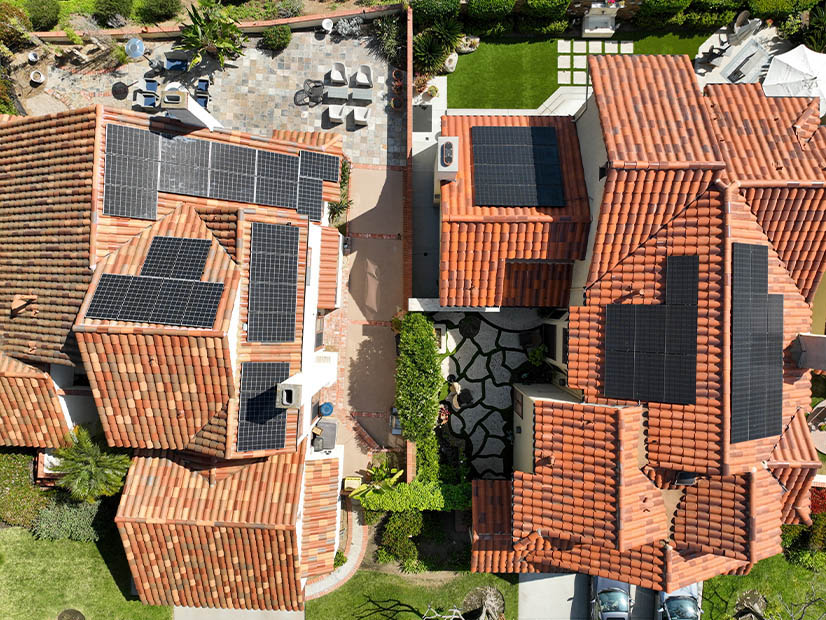The California Public Utilities Commission on Thursday approved a one-year postponement of a decision in its net energy metering rulemaking, as parties on both sides of the issue argued that the Inflation Reduction Act, signed by President Biden last week, supports their views on rooftop solar credits.
The CPUC passed the order extending the deadline for its decision in a unanimous vote on its 35-item consent agenda. Commissioners did not discuss the move, despite its significance and the controversy that has engulfed the CPUC ever since it issued a proposed decision in December to slash solar credits and charge owners for grid participation in a new net energy metering (NEM) tariff. (See California PUC Proposes New Net Metering Plan.)
“An extension of the statutory deadline until August 27, 2023, is necessary to allow adequate time to complete this proceeding,” the order said, citing the need to digest a flood of comments and consider alternative approaches.
The proposed decision was released on Aug. 15. (See CPUC to Delay Net Metering Decision for a Year.)
As in many of its voting meetings this year, the bulk of the CPUC’s session Thursday consisted of public comments on the NEM proceeding, mainly from homeowners upset about the proposed changes.
Their latest target was a filing by the state’s three large investor-owned utilities contending that the extension of federal credits for rooftop solar in the IRA made the state’s generous credits unnecessary.
“The Inflation Reduction Act, and more specifically the extension of the 30% tax credit for both non-residential and residential solar projects, is directly relevant to the modeling of a successor net energy metering tariff in this proceeding,” Pacific Gas and Electric, Southern California Edison and San Diego Gas & Electric said in their Aug. 19 joint filing, which asked the CPUC to take official notice of the new law.
The federal credit “reduces the cost of solar adoption, thereby reducing the payback period for customers benefitting from the tax credit,” the IOUs said.
The utilities have pushed to reduce the longtime state credits that reimburse residential and non-residential solar owners for energy exported to the grid. Customers receive credits at full retail rates, which are now much higher than utility solar costs.
The utilities argued the scheme shifts $4 billion in costs from those who cannot afford rooftop solar to those who can.
In her December proposed decision, Administrative Law Judge Kelly Hymes agreed with the argument, saying the cost shift “disproportionately harms low-income ratepayers.”
Opponents of that proposal, however, contend that more than 1.3 million rooftops in California now have solar arrays, thanks in large part to the generous NEM credits. On Thursday, commenters took issue with the IOUs’ suggestion that the IRA made California’s incentives less necessary.
The state wants to reduce incentives just when Congress clearly indicated the importance of rooftop solar to the nation and when incentives are needed more than ever, they said.
“Your mindset of allowing new solar taxes to be charged and lowering the solar production credits is just wrong,” David Delphos of Orange County told the CPUC. “There is nothing in the new Inflation Reduction Act of 2022 that can justify any new California solar taxes or justify lowering the solar credits for solar system owners.”
Yvette DiCarlo of San Francisco said that “PG&E is now using the Inflation Reduction Act to further justify penalizing rooftop solar.
“Meanwhile PG&E’s website boasts how they own and operate 13 solar large farms in the Central Valley, far from their main customers, and how they also continue to add solar to the grid through contracts with third-party developers. They also boast adding 3,300 MW of new storage by 2024, so it’s clear that PG&E treats rooftop solar as a competitive threat to be squashed.”

